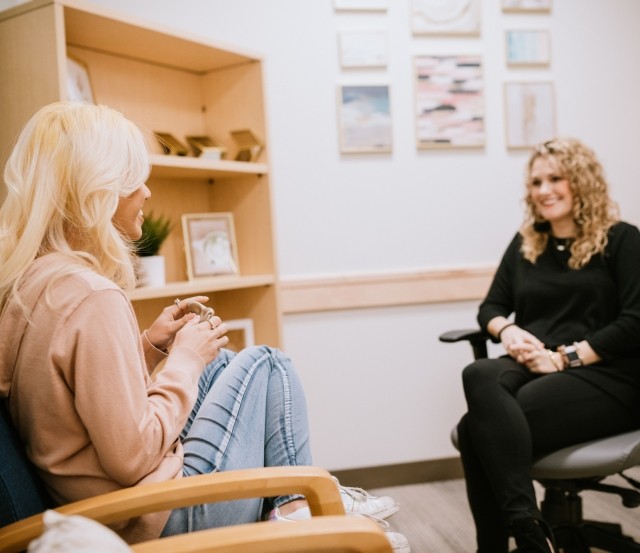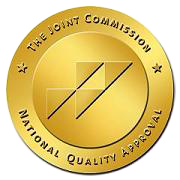

A National Leader in Eating Disorder Treatment
- 35 centers across the country, plus virtual treatment.
- Over 20,000+ patients and their families guided into recovery.
- Specialized treatment designed for adults, children and adolescents of all genders.
100% Confidential
Get matched with the exact support you need.
With one conversation, our mental health professionals will help you better understand what you’re going through and what you need.
We will meet you where you are, listen to your story in a therapeutic setting, and match you with the level of support that meets your struggle.

We Are In-Network With All Major Commercial Insurance Providers
To ensure you can pursue recovery, our dedicated team will work on your behalf by acting as a liaison with your insurance provider, answering your questions, and providing guidance and support every step of the way.
Plus Other Major Insurance Providers
Contact us at 1-877-825-8584 to verify coverage and learn more about your treatment options.
View All In-Network ProvidersConditions We Treat
-

Eating Disorders
An eating disorder is a treatable mental illness that includes a number of different symptoms, including extreme emotions, attitudes, and behaviors surrounding weight and food issues.
-

Anorexia
Anorexia nervosa is characterized by an obsessive fear of weight gain and a refusal to maintain a healthy body weight. -

Atypical Anorexia
You can’t tell if someone has an eating disorder just by looking at them. See how atypical anorexia affects people in a variety of body shapes and sizes. -

ARFID
ARFID is a lesser known eating disorder that frequently begins as early as infancy or childhood, but adults can also suffer. -

Binge Eating Disorder
Binge eating disorder is characterized by frequent overeating – at least once a week for three months – combined with a lack of control, intense feelings of distress and several other characteristic behaviors. -

Bulimia
Bulimia is characterized by patterns of bingeing and purging. -

Compulsive Overeating
Compulsive overeating can involve binge eating and weight gain, but it can also involve other behaviors. -

Diabulimia
The term diabulimia is used to describe the diagnosis of an eating disorder in an individual with type 1 diabetes. These patients intentionally misuse insulin for weight control. -

OSFED
Some eating disorders do not meet all of the diagnostic criteria for specific diagnoses like anorexia nervosa and bulimia nervosa.
Types of Care
-
Inpatient
Medical intervention and support for patients who require medical stabilization.
-
Residential
On-Site, 24-hour treatment for medically-stabilized patients.
-
Partial Hospitalization (PHP)
Daytime, onsite treatment with evenings offsite or at patient's home.
-
In-Person Intensive Outpatient (IOP)
Outpatient care for 3 hours per day, 3-5 days per week.
-
Virtual IOP - Eating Recovery At Home
Outpatient care for 3 hours per day, 3 days per week from the comfort of home.

Eating Recovery At Home: Online Eating Disorder Treatment
In Eating Recovery At Home, our virtual Intensive Outpatient Program (IOP), you’ll learn and develop skills to navigate life’s stressors and build resilience in everyday life.
- Same proven treatment offered on-site from the comfort of home
- Specialized experienced care team includes licensed therapist, registered dietitian, consulting physician and care coordinator
- Group therapy sessions with the same small peer group and clinical team
- Extensive family involvement, education and support
Comprehensive Care Approach
Every person deserves recovery. No matter your condition. No matter how long you’ve struggled. No matter if you believe you may be too ill for treatment, or are not sure you are ‘sick enough’ for treatment.
Our comprehensive care approach begins the day you walk into our doors, and extends to long after you leave our programs.


The Leading Provider of Multidisciplinary Care in the Nation
Our doctors and therapists pioneered the multidisciplinary treatment model for eating disorders at higher levels of care that is widely used today. With 35 centers across the country and virtual care offered, reaching nearly 75% of people in the U.S., our programs were designed by leaders in adult and child and adolescent psychiatry, psychology, medicine and nutrition.
Your Place for Healing and Lasting Recovery
-

What to Expect
A guiding team. A healing environment. Comprehensive treatment techniques. And a community of humans that understand what you’re going through.
-

Who We Serve
Every gender. Every ethnicity. Every size. Every person searching for recovery.
-

History & Vision
Founded in 2008, our vision is rooted in individualized assessment. Cutting-edge clinical intervention. Robust family programming. And comprehensive aftercare planning.
Eating Recovery Center and Pathlight Mood & Anxiety Center
What started as revolutionary eating disorder treatment has now grown to meet the needs for a full range of mental health conditions, allowing us to effectively treat individual diagnoses and co-occurring illnesses. Learn more about our Pathlight Mood & Anxiety Programs and our programming for mood, anxiety and trauma-related disorders here.

Resources for Eating Disorder Treatment
Hide Last Child Layout Div






